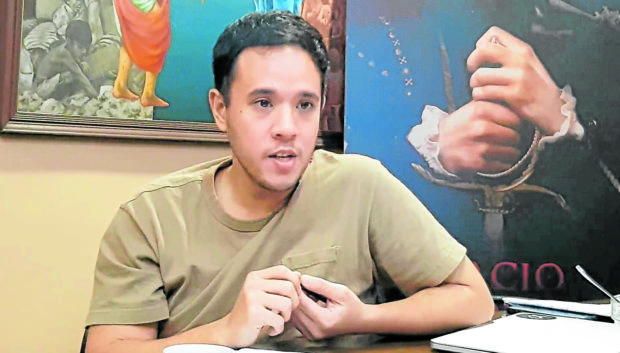“This is not going to be a textbook story brought to screen. This is going to be a really beautiful and engaging movie,” promised filmmaker Pepe Diokno when Inquirer Entertainment asked him how he intended to share with present-day audience a 150-year-old story featuring a group of revolutionary priests.
Diokno, winner of the Venice International Film Festival Orrizonti Prize for “Engkwentro” (2009), will be directing his first full-length feature in seven years.
Titled “GomBurZa,” the film will be based on the lives of Catholic priests Mariano Gomez, Jose Burgos, and Jacinto Zamora who were executed by Spanish authorities through garrote on Feb. 17, 1872; the three were falsely accused of treason.
“The script that Rody Vera has written is very rich. It is not a slow film. It is set within the span of 10 years but will be told within an hour up to three. It’s really packed with events, packed with characters. I think the audiences of today are not going to get bored by it. They will actually be very engaged,” Diokno said during a virtual meet organized by the film’s producer Jesuit Communications (JesCom), the media arm of the Philippine Province of the Society of Jesus.
“GomBurZa” is JesCom’s second major motion picture after “Ignacio de Loyola” (2016), the biopic of Society of Jesus founder St. Ignatius of Loyola.
Friendship, politics
“The story is intriguing. It’s about friendship and betrayals. It’s about faith and religion, but also about politics,” Diokno explained. “I don’t want the three priests to be two-dimensional characters. I want to see who they are as friends, as mentors to others. I want to see how they are when they’re at home. I think when you make historical characters more relatable, the audiences of today would sort of latch on to them much more.”
Diokno released his sophomore film, “Above the Clouds,” in 2014. He swore to have grown a lot artistically, especially after directing several commercials and branded films.
“I now know what I like and don’t like much better. For me, this is the perfect film to get back to the medium with because of its rich story,” he pointed out. “I really see this as a very character-driven story. We will also present characters that you have not heard much of before. For example, Father Palaez, who is an unsung hero in our history. He may not be as known as the three priests, but he is somebody who deserves a lot of credit.”
Meanwhile, Vera said that while this is a tribute to the three priests, the audience can also expect to see the bad along with the good. “This is what I want to show the audience with this film,” he stressed. “I actually don’t know if this will cause the priests to miss their shot at canonization because this does not depict them as candidates for sainthood.”
Each character has his own quirks, said Vera. “Even with their martyrdoms, the priests were not the same in terms of their acceptance and interpretation of the death they faced. As for quirks, one was a gambler while another fathered a child. These are human beings, and they interact with other human beings as well. Even the governor generals, Carlos Maria dela Torre and Rafael Esquierdo, have their own motivations as to why they did things.”
Historical decisions
Vera further said: “More than presenting what’s good or bad, I prefer to learn the reasons they did things, because whatever they did eventually all became historical decisions. I’ve written several historical films and my attack is always the same: I don’t idolize or idealize my subjects because they’re humans. I guess it’s just us, the audience, who look up to them because we are aware of the impact of what they did to our history.”
According to JesCom executive director Rev. Fr. Emmanuel Alfonso, SJ, he expects “GomBurZa” to highlight the impact of the three priests on the country’s political history. “Their martyrdom in the 19th century inspired many of our heroes, including Jose Rizal,” Alfonso said. “Without a doubt, the Church has been part of the emergence of the Philippine nation.”
Alfonso said the search for those who will portray these all-important characters is still ongoing. He added that the JesCom is considering submitting the film to the 2022 Metro Manila Film Festival in December. Filming begins in July.
Also present during the virtual media conference are cinematographer Carlo Mendoza, production designer Ericson Navarro and JesCom creative director Pauline Mangilog-Saltarin.
For updates, visit the JesCom Facebook page or website Jescom.ph.
RELATED STORIES
Pepe Diokno admits making films for selfish motives
Pepe Diokno’s ‘Kapatiran’ in Czech Republic film fest
